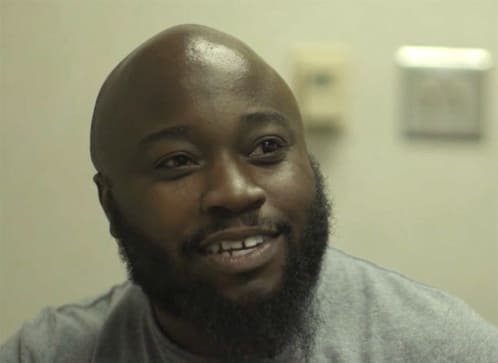March 10, 2017
By Luna Greenstein
Sharing your story isn’t easy. But it is powerful. It has the power to change perceptions, encourage understanding and provide hope to others. And the brave people who open up about their mental health journeys—risking stigma and discrimination—deserve to be recognized.
Created in partnership with NAMI, the new documentary Beyond Silence highlights three courageous individuals determined to break through the silence of mental illness stigma and help others who are struggling. Directed by Shaul Schwarz and produced by Demi Lovato, this powerful documentary showcases the lives of Jess, Lauren and Lloyd, who live with anxiety and depression, bipolar disorder, and schizophrenia (respectively). The film manages to go into the details of their mental health journeys while maintaining that their conditions do not define them. The film’s subjects are depicted as they are: real people with careers, families and goals, who also happen to live with mental illness.
After I watched the documentary, I felt deeply moved. Not only were Jess, Lauren and Lloyd able to recover from their mental health conditions, but they were so willing to tell others about their experiences. I decided to reach out to Lloyd to hear straight from the source what it was like to be so open and vulnerable on such a large stage.

Lloyd explained to me that he shared his story over time. He didn’t wake up one day and suddenly tell every person he met every detail. It all began when he was a young adult, living in a mental hospital. While Lloyd was standing in line for the shower, a nurse told him she was pleasantly surprised by his good behavior and positive attitude, despite all the warnings she had received from her colleagues that he was “dangerous.”
She asked him what happened, why he was there. He responded that he wasn’t ready to talk about it yet. Her response is what stuck with Lloyd for years to come. She simply said, “You must have a lot of healing to do.”
After that exchange, Lloyd spent a lot of time wondering, “Why am I not ready to talk about this?” He realized that she was right—he had a long road of healing ahead of him. Because before Lloyd got help in that mental hospital, before he knew he had schizophrenia, before he even knew that having voices in your head didn’t happen to everyone—Lloyd experienced something that he is still healing from today, over ten years later:
Lloyd’s mother came to him for help—her boyfriend wanted to end his life and she needed Lloyd to do it. Without hesitation, Lloyd went to her boyfriend’s apartment and provided this service. In the moment, he felt accomplished. He felt as if he was “providing something for your family that no one else can provide.” It was only after did he realize that it was actually his mental illness that told him to carry out this deed, not his mom.
Lloyd slowly began sharing his story in small pieces, adding detail as he became more comfortable. “It felt great,” he told me. Sharing his story gave him the opportunity to connect with other people who also live with mental illness and experience hardships because of it.
With all the stigma surrounding mental illness, Lloyd’s story—like many others—is a difficult one to share. It is deeply personal and emotional, and not every person can fully understand what happened to him. And yet, he still tells it.
Lloyd is a living example of a person in recovery who uses his incredible story as a way to help other people experiencing mental health challenges and spread awareness that mental illness doesn’t define you as a person. As he explained to me, his main message has always been: “For those in recovery, it’s our responsibility to be open and share our stories with the people in our community who are still living in darkness.”
If you are living in recovery and you feel inspired to share your story after watching this documentary, here are a few pieces of advice to help you communicate your mental health journey:
You are brave and strong for sharing your journey. Always remember: You’re not alone, there is hope and you can make a difference.
Check out the Beyond Silence documentary here.
We’re always accepting submissions to the NAMI Blog! We feature the latest research, stories of recovery, ways to end stigma and strategies for living well with mental illness. Most importantly: We feature your voices.
LEARN MORENAMI HelpLine is available M-F, 10 a.m. – 10 p.m. ET. Call 800-950-6264,
text “NAMI” to 62640, or chat online. In a crisis, call or text 988 (24/7).